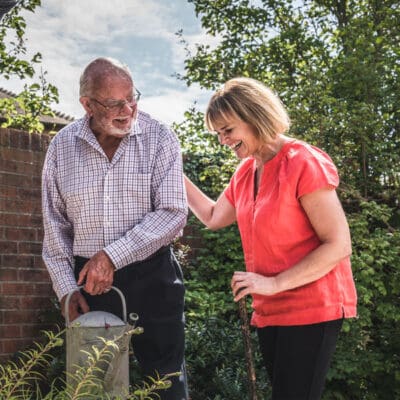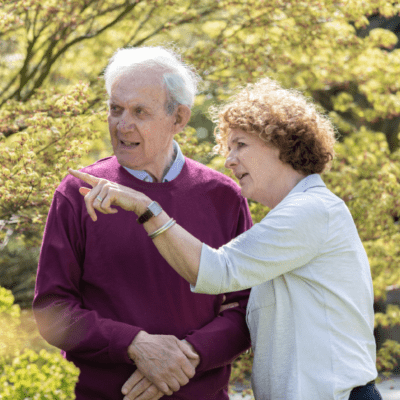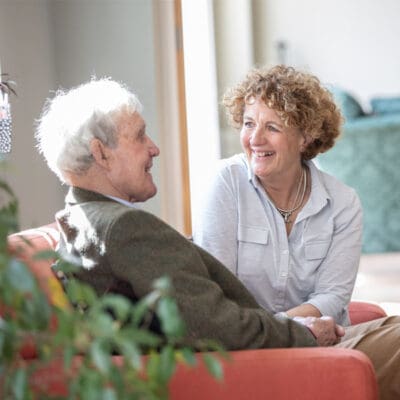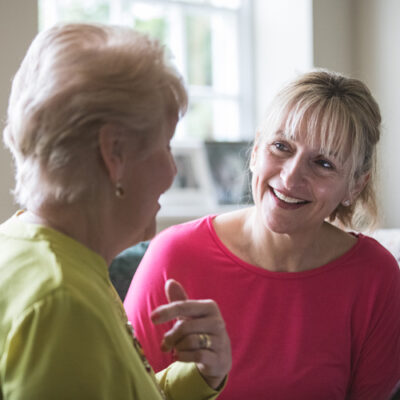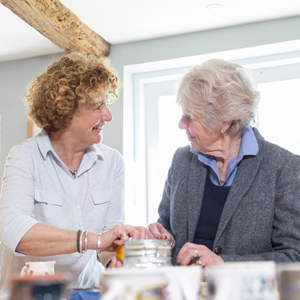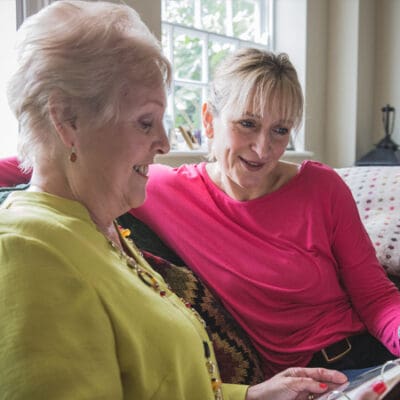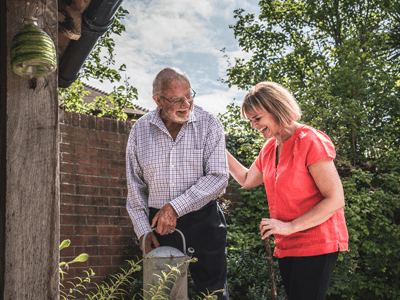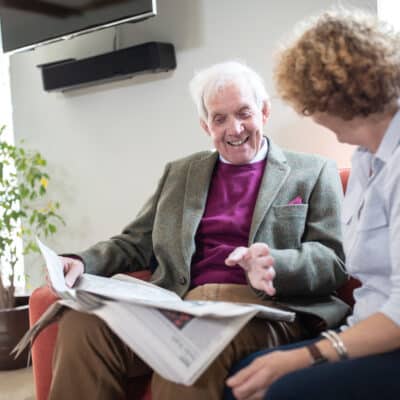Loneliness and social isolation among older individuals can have detrimental effects on their mental and physical well-being. As people age, changes in their social networks, health limitations, and life transitions can lead to increased feelings of loneliness and isolation. Retirement, the loss of a spouse or close friends, mobility issues, and decreased participation in social activities are just a few factors that can contribute to this growing problem. The impact of social isolation on older adults cannot be overstated. Studies have shown that prolonged loneliness and isolation are associated with an increased risk of depression, anxiety, and cognitive decline. In this article, we will discuss practical ways to support and empower older adults to stay connected and engaged. From encouraging
...How to care for an elderly person: 8 caregiving tips
The ageing population trend isn’t merely a concern for governments or healthcare institutions—it impacts every individual with elderly family members or loved ones, as well as those approaching their own golden years. Maintaining good health in older age extends far beyond medical treatments. It encompasses holistic care, ensuring comfort, independence, and vitality for all of life. Below, we present 8 invaluable tips and accompanying resources for people looking to provide the best care to their elderly loved ones. 8 tips for caring for an elderly person 1. Enlist help early on Caring for ageing parents is a significant responsibility that often becomes more demanding as they grow older. Their needs tend to evolve over time, adding complexity to the caregiving
...What to do when the elderly keep falling
Frequent falls among the elderly can be a concerning and challenging issue for both seniors and their caregivers. Despite efforts to implement preventive measures, such as ensuring a safe home environment and promoting regular exercise, some elderly individuals may continue to experience falls. In this guide, we delve into the various factors to consider when addressing recurring falls among the elderly, including potential medical reasons, medication-related concerns, and strategies for fall prevention. Understanding how to manage and mitigate the risk of falls effectively is essential for promoting the safety, well-being, and independence of your elderly loved ones. Why are the elderly at risk for falls? As individuals age, various factors contribute to an increased susceptibility to falls. These include age-related
...Respite care for the elderly
Respite care for the elderly serves as a vital lifeline for both the elderly and their carers, offering temporary relief and support in times of need. Oxford Aunts has provided respite care to thousands of families across Oxfordshire and beyond for over 50 years. With an Oxford Aunts respite carer, you will be able to live life your way with as much independence as possible. You’ll benefit from a tailored plan of care delivered by a compassionate carer on a one-to-one basis. Learn more about the importance of respite care, its benefits, and how it can positively impact the lives of your elderly loved ones. What is respite care for the elderly Respite care for the elderly provides a vital
...Elderly sitting services
Everyone could use an occasional break from their caregiving duties to relax and take care of their personal affairs. Our elderly sitting service ensures your loved ones are well taken care of by an experienced elderly sitter whilst family members are afforded time away from their caregiving role. Our sitting service for the elderly is provided as live-in respite care. An experienced Oxford Aunts’ carer will come to live with you in your home to provide the care and support you need, with as much independence, choice and dignity as possible. For over 50 years, Oxford Aunts has provided elderly sitting services throughout Oxfordshire and its surrounding counties. Located in the heart of Oxford, our reputation is built on high
...Guide to supporting elderly owners in keeping their pets
The bond between seniors and their furry companions is a cherished aspect of life, one that offers many far-reaching benefits beyond companionship. Research suggests that pet ownership provides many physical benefits, including lowering blood pressure and increasing stamina. But the benefits extend far beyond physical well-being. The unique bond created between older owners and their pets enriches socialisation and overall quality of life. Despite the many benefits, caring for a cat or dog comes with its own set of challenges as individuals age. Physical limitations, memory concerns, and financial constraints may complicate caring for a beloved pet. For elderly people and their families in the UK, navigating these challenges often necessitates a robust support system. This elderly pet care guide
...Caring for our carers: Promoting workplace mental health & well-being
At Oxford Aunts, we understand the crucial role our live-in carers play in caring for some of the most vulnerable people in society. Recognising the demanding nature of their responsibilities, we prioritise the mental health and well-being of our carers. We know that when carers are empowered with the support they need, they can deliver the exceptional care for which we are renowned. Recent research highlights mental health concerns as a primary cause of workplace absence in the UK. In response to this worrying trend, Oxford Aunts is committed to proactively addressing the mental health needs of our valued carers. Below, we outline our strategies for preventing burnout and promoting well-being among our dedicated carer teams. Extended breaks for renewal
...Hourly cost of care at home
Understanding the hourly cost of care at home is a key concern for families seeking quality care services. At Oxford Aunts, we believe in transparent pricing to help families make informed decisions about their care options. Our hourly rates for home care in the UK are competitive and reflective of the high-quality care our team provides. We recognise that each situation is unique, and our pricing is designed to accommodate the diverse needs of our clients while maintaining affordability. How much does home care cost per hour in the UK? Home care costs per hour in the UK are influenced by various factors, including the level of assistance required, the complexity of medical needs, and the frequency of care. Across
...Dementia Charities in the UK
There are many dementia charities in the UK that support people diagnosed with dementia and Alzheimer’s, their caregivers and their families. These charities provide crucial financial and emotional support to families affected by dementia and conduct scientific and academic research into the prevention and treatment of the disease. Whilst there is currently no cure for Alzheimer’s disease or any other type of dementia, many of these charities are working on the research that will one day beat the disease. These charities often rely on public support to help fund educational resources, advocacy work and research. Whilst there are many local and regional charities throughout the UK worth supporting, here are some of the largest and most well-known dementia charities in
...Activities for the Elderly in Oxfordshire
Keeping active is important at any age, particularly as we get older to maintain our health and reduce the risk of disease. It’s never too late to start getting out and about more, and these activities in and around Oxfordshire can help older adults get active, socialise, and have fun. Our guide for activities for the elderly in Oxfordshire includes something for everyone, ranging from health walks and fitness classes to social groups for all sorts of hobbies and interests. Whether you want to walk with the Oxford Ramblers or sing your heart out with the Tuneless Choir, older people from all walks of life will find an engaging activity to suit their interests. Museums and Art Galleries Ashmolean Museum
...

